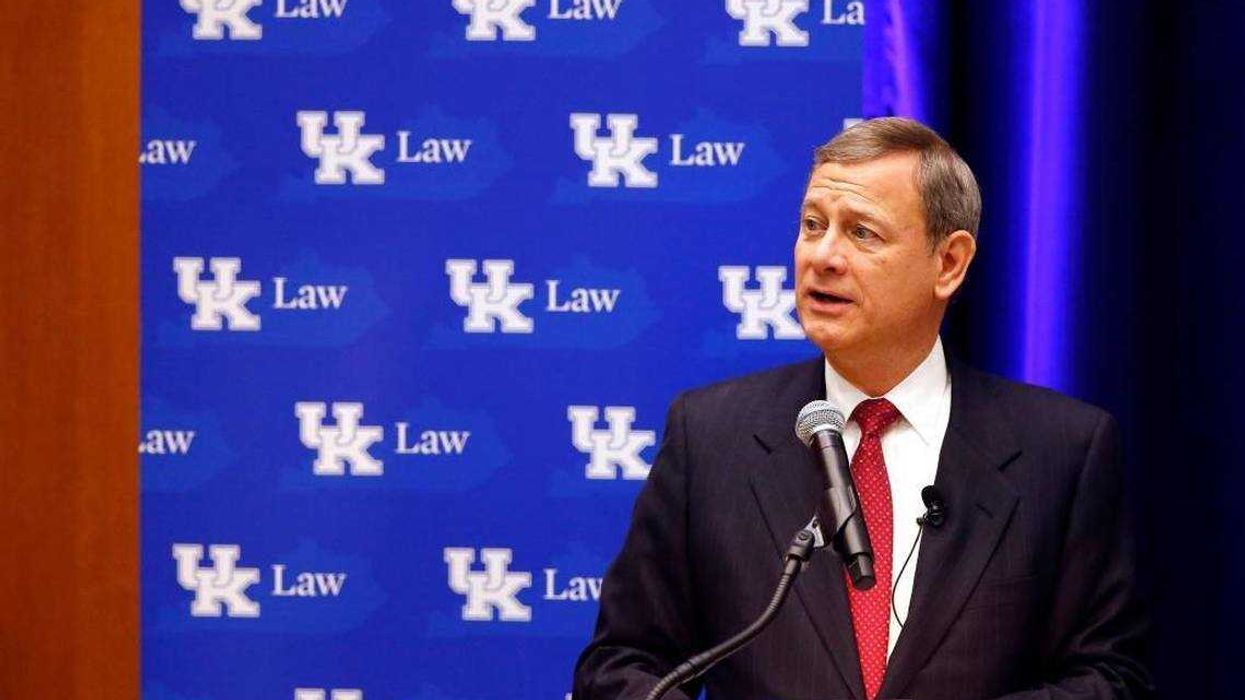Chief Justice John Roberts, appointed by then-President George W. Bush in 2005, is often described by legal scholars as one the more nuanced conservatives on the post-Anthony Kennedy U.S. Supreme Court. For example, Roberts and three Democratic appointees voted against overturning Roe v. Wade in the 2022 ruling Dobbs v. Jackson Women's Health Organization.
But while Roberts isn't as far to the right as Justice Clarence Thomas or Justice Samuel Alito, he isn't nearly as libertarian-leaning as retired Justice Kennedy. And Roberts' critics view him as way too favorable to President Donald Trump.
In an interview published in Q&A form on Halloween 2025, Salon's Chauncey DeVega and legal scholar/author Lisa Graves offer a scathing critique of Roberts — who DeVega considers one of the "most significant" of Trump's "enablers." .
DeVega believes that Roberts has played a "central role in delegitimizing the once-trusted" High Court "in service to Trumpism." And Graves, author of the new book "Without Precedent: How Chief Justice Roberts and His Accomplices Rewrote the Constitution and Dismantled Our Rights," shares that view.
During the interview, Graves was especially critical of Roberts' ruling in Trump v. the United States — which said that U.S. presidents enjoy absolute immunity (as opposed to qualified immunity) from criminal prosecution for "official" acts committed when they're in office.
Graves told DeVega, "One of the most significant moments at John Roberts' nomination hearings to become the chief justice of the United States was his affirmation that no one is above the law… Roberts made that promise to the American people 20 years ago, but then, when it mattered most — when Donald Trump asserted that he is above the law — (Roberts) broke that promise. The (Supreme) Court easily could have let the lower court ruling against Trump (having presidential immunity) stand, but Roberts orchestrated a ruling that effectively pardoned Trump retrospectively and prospectively. That unprecedented and partisan edict paved the way for Trump's return to power."
The legal scholar continued, "The Constitution provides zero immunity for presidents from criminal prosecution. But John Roberts chose to be the kingmaker, giving Trump king-like powers last year, and then this year mowing down well-founded and well-grounded temporary restraining orders (that allowed) an array of unilateral and extreme dictates to proceed — even though doing so will cause irreparable harm (by letting Trump) transgress constitutional provisions, laws passed by Congress and long-standing legal precedents."
Roberts, Graves lamented, "has repeatedly failed to object when compromised justices fail to recuse themselves from cases in which there exists a reasonable — or more than reasonable — perception of impropriety or actual conflicts of interest by other members of his far-right faction."
"The American people understand that this Court is out of control," Graves told DeVega. "Public respect for the Court is at an all-time low…. Roberts is presiding over the most untrusted Supreme Court since polling about the Court began decades ago. The lower courts, which are trying to follow the rules, are acting fairly, but not this arrogant, hyperpartisan MAGA faction dominating the Supreme Court."
Chaucey DeVega's full interview with Lisa Graves for Salon is available at this link.


